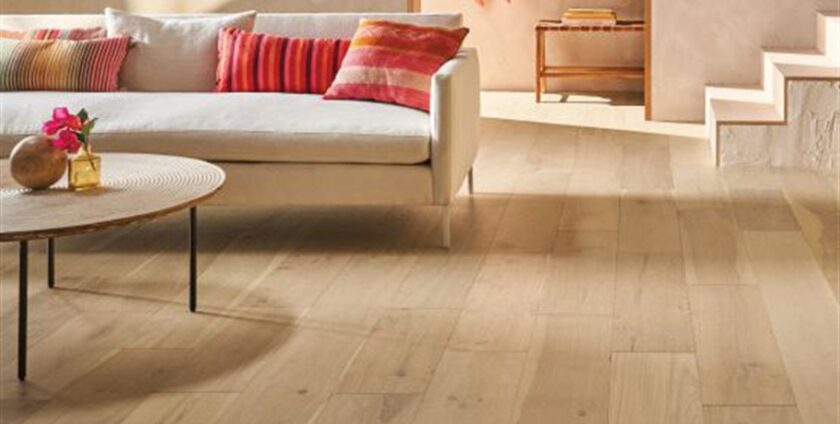
Engineered wood flooring has become a popular choice for homeowners seeking the beauty of hardwood with added durability and versatility. However, like any flooring option, engineered wood has its own set of advantages and disadvantages that should be considered before making a decision. Let’s explore the pros and cons to help you determine if engineered wood flooring is the right choice for your home.
Pros:
- Durability: Engineered wood flooring is constructed with multiple layers of wood veneer stacked in alternating directions, providing enhanced stability and resistance to moisture and temperature fluctuations. This makes it less prone to warping, cupping, and shrinking compared to solid hardwood, making it suitable for areas with high humidity levels, such as basements and bathrooms.
- Cost-Effective: While engineered wood flooring may have a higher upfront cost than some other flooring options, it often proves to be more cost-effective in the long run. Its durable construction and ability to withstand wear and tear mean fewer replacements and repairs over time, resulting in savings on maintenance and replacement costs.
- Versatility: Engineered wood flooring comes in a wide range of styles, species, and finishes, allowing homeowners to achieve the look of hardwood that complements their aesthetic preferences and home décor. Whether you prefer the rich warmth of oak, the timeless elegance of maple, or the rustic charm of reclaimed wood, there’s an engineered wood option to suit every taste.
- Easy Installation: Engineered wood flooring typically comes in planks with tongue-and-groove or click-lock installation systems, making it easy to install for DIY enthusiasts or professional installers. It can be installed as floating floors over existing subfloors, saving time and labor costs compared to traditional nail-down installations.
Cons:
- Limited Refinishing: While engineered wood flooring can be sanded and refinished to remove surface scratches and wear, the number of times it can be refinished depends on the thickness of the top veneer layer. Thicker veneer layers allow for more refinishing opportunities, whereas thinner layers may limit the lifespan of the flooring.
- Moisture Sensitivity: Despite its enhanced moisture resistance compared to solid hardwood, engineered wood flooring is still susceptible to water damage if exposed to standing water or excessive moisture for prolonged periods. Proper installation and maintenance are essential to prevent moisture-related issues such as swelling, warping, and mold growth.
- Perceived Value: Some homeowners may perceive engineered wood flooring as less valuable or authentic compared to solid hardwood. While engineered wood offers many benefits, including durability and versatility, it may not have the same resale value or prestige as solid hardwood in certain markets.
In conclusion, engineered wood flooring offers a compelling combination of durability, versatility, and cost-effectiveness that makes it a popular choice for many homeowners. However, it’s essential to weigh the pros and cons carefully and consider factors such as your budget, lifestyle, and aesthetic preferences before making a decision. To explore our wide selection of engineered wood flooring options and find the perfect fit for your home, visit Amazonia Flooring today.
- By: amazonia_user" >amazonia_user
- Category: Uncategorized
- 0 comment


 At Amazonia Flooring, we are passionate about transforming your spaces with the finest flooring solutions that combine functionality, aesthetics, and durability.
At Amazonia Flooring, we are passionate about transforming your spaces with the finest flooring solutions that combine functionality, aesthetics, and durability.